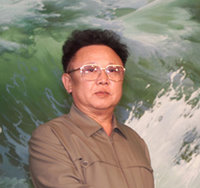Despite U.S. President Barack Obama's campaign promise to engage rogue regimes, America's relationship with North Korea has been frosty since he took office. A string of provocations by Pyongyang last year, including the sinking of the South Korean corvette Cheonan and a missile attack on Yeonpeong Island, further dampened hopes for progress. But recent staff changes in the Obama administration and other signals suggest that ties may warm in the coming months.
On Oct. 19, State Department spokesman Mark C. Toner announced in a press briefing that Stephen W. Bosworth, dean of the Fletcher School of Law and Diplomacy would step down from his position as special representative to North Korea. The choice of his replacement, Glyn Davies, currently U.S. ambassador to the International Atomic Energy Agency (IAEA), the nuclear watchdog agency, raised hopes that the Obama administration will seek to reinvigorate and reshape talks with nuclear-armed Pyongyang.
It is difficult to know for sure exactly what the staff change in and of itself signals. The administration has insisted that Bosworth’s departure was due to personal reasons rather than policy disagreements. Meanwhile, some commentators have suggested that the replacement of a high-profile special envoy with a low-profile professional diplomat is in fact designed to play down the Obama administration's initially dramatic engagement strategy and impose message discipline on critical foreign policy issues ahead of the 2012 election.

